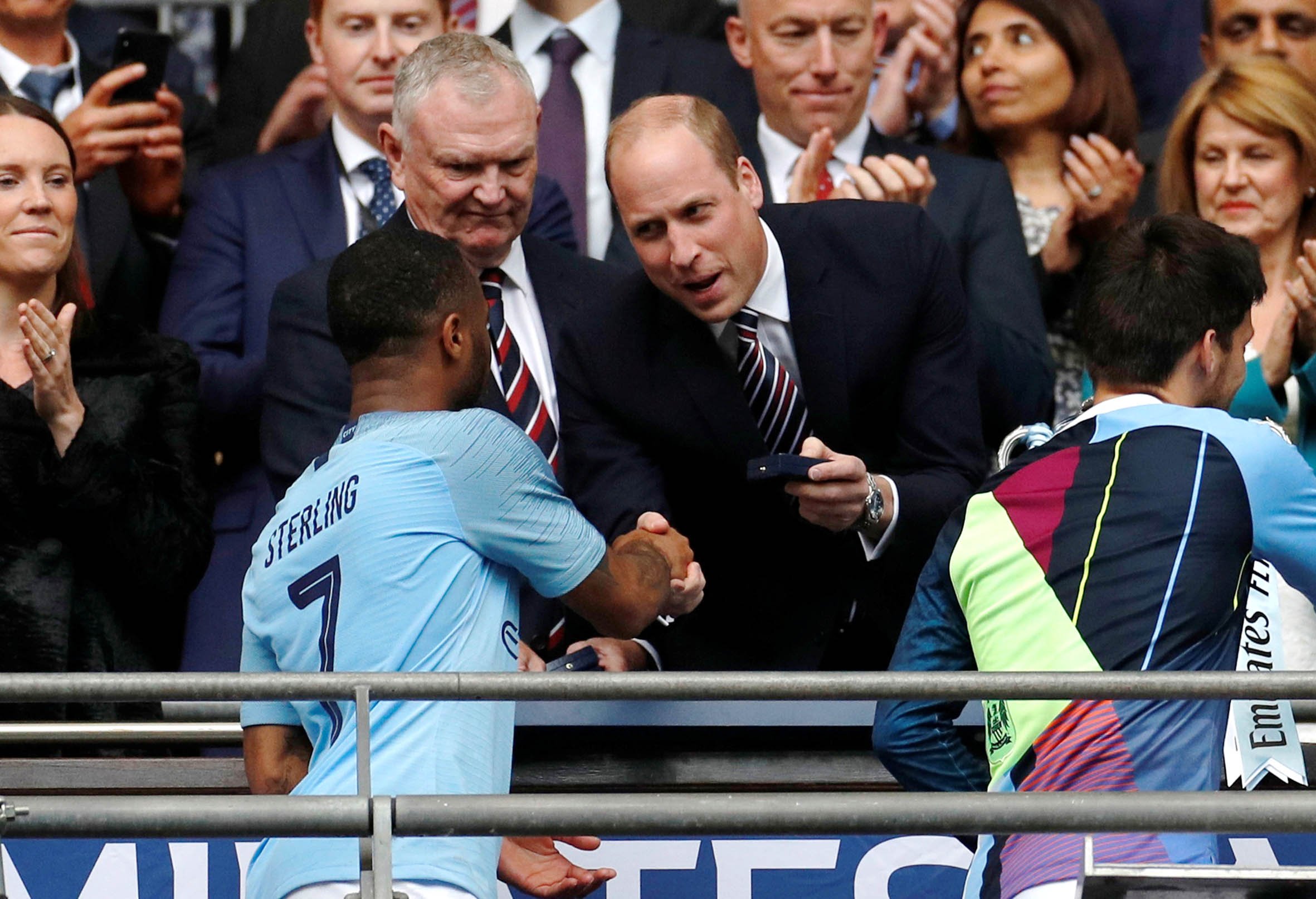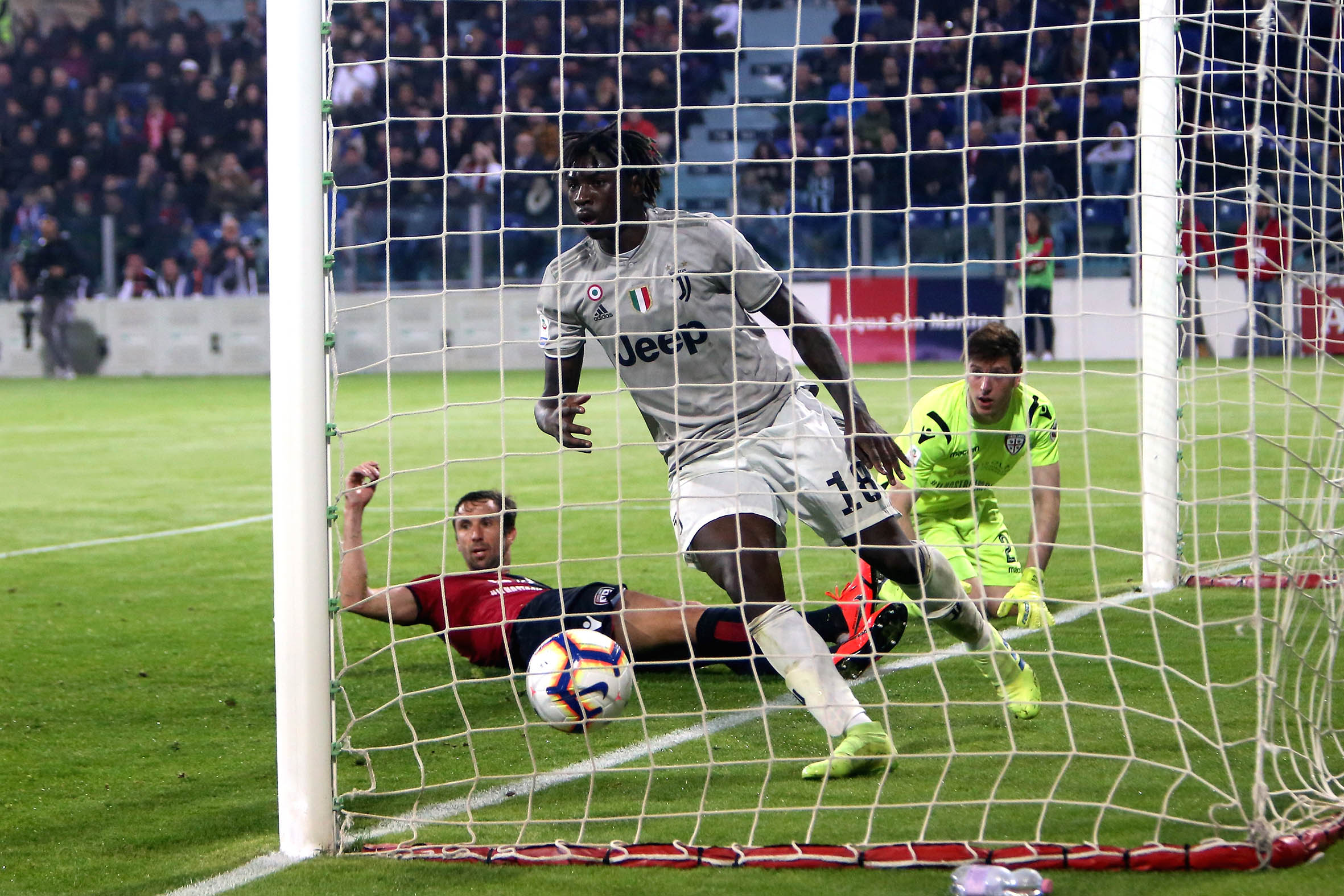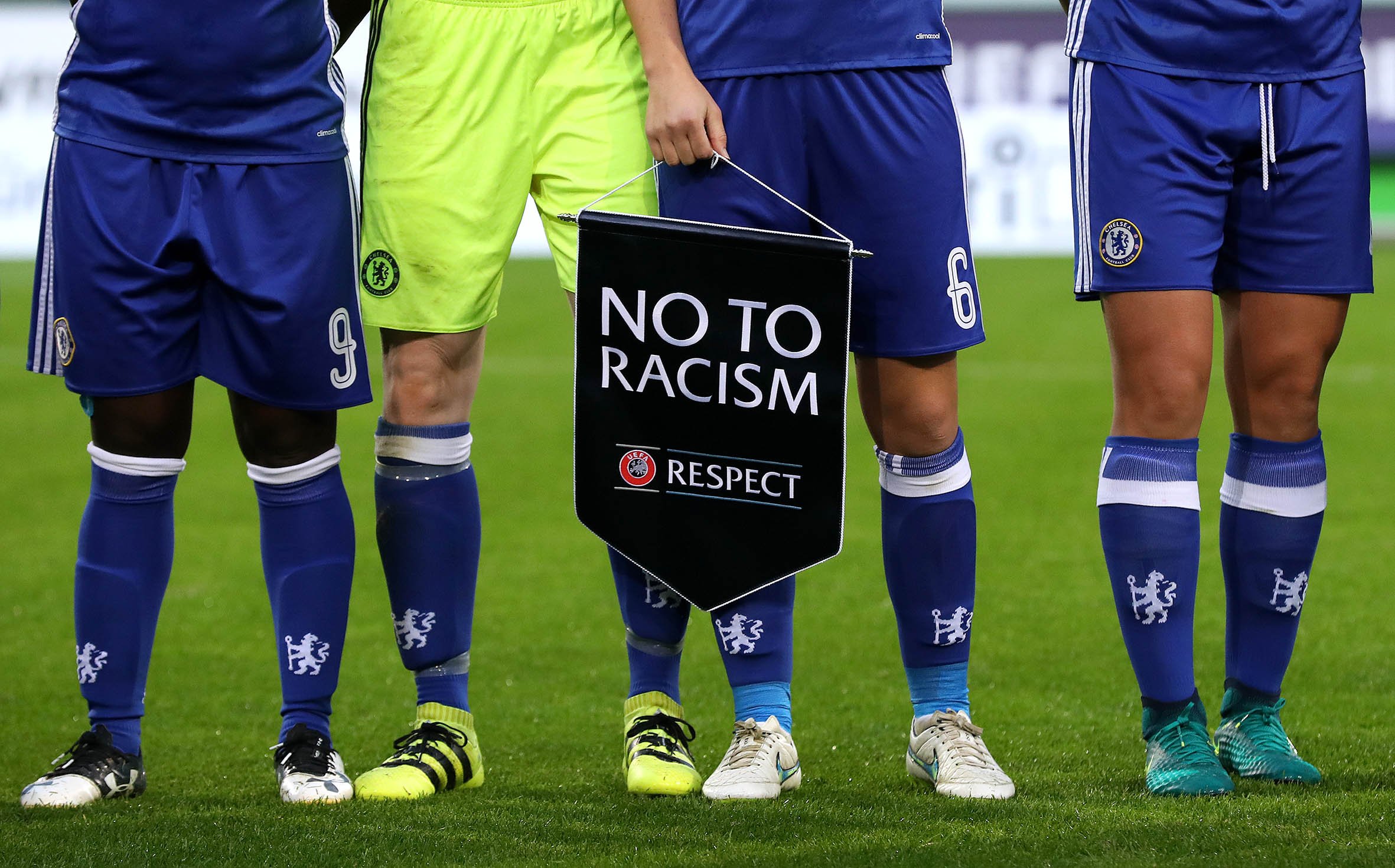Jubilation: Liverpool manager Jürgen Klopp celebrates with his players after winning the Uefa Champions League final against Tottenham Hotspur in Madrid earlier this month. (AFP)
English football celebrated because all four finalists in the Uefa Champions League and Europa League finals were from one country: England. But is this achievement a reason to celebrate or should it be a cause for concern?
You probably don’t know David Vance, but you must know at least one David Vance. Were it not for social media, they wouldn’t exist.
Pasty, male and as English as a pork pie, Vance is the very picture of impotent white rage of a certain age. He’s from that time when all was right with the world, before they ruined everything by forcing us to allow married women to watch the Olympics.
Last month Vance tweeted to the more than 82 000 followers under his rock: “Last night, Barcelona. Tonight. Ajax. Johnny Foreigner shown a bloody nose. Rule Brittania!”
It’s unfortunate he can’t spell Britannia, but also unimportant. What matters is the untruth Vance and his ilk are trying to peddle: his message earned more than 340 retweets and almost 2 000 likes.
“A great night for English football” was heralded up and down the land of Saint George. On May 7, at home at Anfield, Liverpool found a way to put four unanswered goals past Barcelona, who had won the first leg of their Uefa Champions League semifinal 3-0 six days earlier at Camp Nou. Then Tottenham Hotspur, beaten 1-0 by Ajax Amsterdam in their new, £1-billion stadium in north London, won the second leg 3-2 to set up a Liverpool-Spurs final in Madrid on June 1.
Arsenal and Chelsea reached the Europa League final played in Baku, Azerbaijan, on Wednesday May 29, which Chelsea won 4-1. Three days later, Liverpool were crowned kings of Europe for a sixth time, thanks to their 2-0 win over Spurs.
How English are these teams?
For the first time, all four teams in the two showpiece matches of the European season are from one country. Or are they? How English are Liverpool, Spurs, Arsenal and Chelsea? Not nearly as much as Vance and his cohort of cretins would have the unsuspecting believe.
John W Henry II, the son of Illinois soybean farmers, owns Liverpool. Arsenal belongs to “Silent Stan” Kroenke, who hails from the Missouri hamlet of Mora, where he cut his teeth in capitalism by sweeping the floor at his father’s lumber company using a broom much taller than he was. By the age of 10, he was doing the books.
The look of Kroenke’s surname might make him seem Jewish. He isn’t, but Chelsea’s Russian owner, Roman Abramovich, is. As are Joe Lewis — born above a pub in Bow, deep in London’s East End — and Essex-born David Levy, Spurs’ proprietors. None of which is likely to please the friendly neighbourhood far rightists, who also won’t want to learn that Saint George was born in Turkey to a Syrian mother.
Liverpool is managed by Jürgen Klopp and Spurs by Mauricio Pochettino. Maurizio Sarri is in charge at Chelsea and Unai Emery at Arsenal. They are from Germany, Argentina, Italy and Spain, respectively. Of the 121 players on the books of these four clubs, 78 are not English.
Just one Englishman started in the Europa League final. Seven were in the 22 for the Champions League showdown. Not one of the seven goals scored in those games was the work of an Englishman. Only one of the 16 goals scored across both legs of the semifinals was — by Chelsea’s Ruben Loftus-Cheek. And he, like six of the nine goal scorers in both semis and finals, is not white.
Because that’s what this “football’s coming home” bumph is really about. It flies on the same wings as the racist “great white hope” narrative that used to taint boxing. It’s bound up with Britain’s historical tendency, and England’s in particular, to take what they want from other countries and those countries’ people, use them up and, once that’s done, discard them and deride them as uncivilised and backward.
Colonisation 2.0
They can be colonised and subjugated every which way, but they should never be considered — especially not by themselves — as British. It’s a lesson players such as Manchester City’s Raheem Sterling, born black and in Jamaica, but with 49 senior England caps to his name, continues to be taught by opposition fans and, snidely, the tabloids.
 Global game: Raheem Sterling greets Prince William. (Reuters/John Sibley)
Global game: Raheem Sterling greets Prince William. (Reuters/John Sibley)
From a South African perspective, you can trace this line through the 1913 Natives Land Act, the law that originally left only 7% of the country in the hands of the black people who had always called it home. One of the key motivations for the act was the need for a workforce to dig the gold out of the mines, which were British- and European-owned.
Forced off the land, black people provided that workforce. For their next trick, the colonisers conjured from the ranks of relatively lower-class white South Africans a stratum of management to keep all those black people in line. Thus divided and ruled. South Africa was ripe for the formalisation of apartheid from 1948. It’s not a long leap from there to recognise the 13 European mega clubs — six of them in the English Premier League, the richest competition in the game — as the gold mines of modern football. History tells us the English aren’t going to get their feet dirty scoring goals for their own teams. That’s for the hired help from wherever to do, but best they don’t try to rise above their station. The political economy of football proves Britain is still colonising many of the rest of us.
So far, so bad. But adherents of the above, this reporter included, will be less enthusiastic about considering the other side of the coin.
Had Sterling remained in Jamaica, would he be earning the £300 000 (about R5.5-million) a week City reportedly pay him? Would he have been able to buy a house for the mother who guided him safely through his difficult years growing up on a modest north London social housing estate?
The counterargument is that, were he not useful to England as one of the best players on the planet, Sterling could be relegated to the kind of second- or even third-class citizenship that has led to Jamaicans being dehumanised and deported. And these are the self-same people who answered the call to rebuild Britain in the wake of World War II, who have been enriching the country’s culture ever since — as well as paying their taxes.
Man City caught offside
The irony in the exchanges in the ongoing row about Man City being accused of violating Uefa’s Financial Fair Play Regulations in their acquisition of players, won’t be lost on those who hold a global world view that sees sport as part of, and influenced by, greater reality. City’s alleged actions have taken the gloss off becoming the first men’s club to win the Premier League, the FA Cup and the League Cup in the same season — and could lead to City being banned from playing in the Champions League.
“With success there is a certain level of jealousy, envy, whatever you call it,” said City chairperson Khaldoon al-Mubarak at the end of May.
“The football world is very small and word comes around very quickly, so when someone somewhere in a leading position in any club says or briefs something, guess what? We know about it. The reality is, we didn’t buy the most expensive player, the most expensive goalkeeper, the most expensive midfielder, the most expensive striker. Let’s look at facts.”
 Moise Kean, another player with links to a former colony that plays his football in Europe. (Enrico Locci/Getty Images)
Moise Kean, another player with links to a former colony that plays his football in Europe. (Enrico Locci/Getty Images)
That followed Spanish La Liga president Javier Tebas letting loose with: “There are clubs who could not care less what their real incomes are when they want to sign a player, because they receive incomes from a state. It forces other clubs into an economic situation, which is really living on the edge. It skews the balance of the entire European football structure.
“This is no longer sport. This is no longer an industry. It becomes more like a toy, the plaything of a state. And when it’s a plaything, kids start playing with other kids. You end up ruining the entire system.”
Tebas targeted City and Paris Saint-Germain. The latter is owned by Qatar Sports Investments, which has ties to Nasser bin Ghanim al-Khelaifi, the club’s president and a minister without a portfolio in the Qatari government.
City are the expensive toy of Mansour bin Zayed al-Nahyan, often referred to as Sheikh Mansour, a member of Abu Dhabi’s ruling family. Not that Tebas has room to talk, what with Barcelona and Real Madrid and their millions lending La Liga significantly more respectability than it merits.
England can unlock potential
The load is a little more evenly spread in England, where it’s not only football that knows good players when it sees them — and how to unlock their potential and push them towards the upper limits of their ability.
 The Chelsea women’s team. (Ronny Hartmann/Uefa/Getty Images)
The Chelsea women’s team. (Ronny Hartmann/Uefa/Getty Images)
Five players in England’s squad of 15 at the Cricket World Cup were born in other countries. One of them, Eoin Morgan, whose Irishness is obvious from his accent, is their captain — and he usually declines to sing the national anthem before matches.
Pietermaritzburg’s Kevin Pietersen was a gangly off-spinner who could bat a bit but didn’t stick out as a star player until he came to England, where he went on to shine brighter than any batter of his generation.
Before he played for Derbyshire in 2018, Duanne Olivier was a one-dimensional fast bowler. He returned to South Africa a noticeably better player, which showed in his Test performances. The positive effects of the county kink in his career are conveniently overlooked by South Africans, who bemoan him signing a Kolpak contract that takes him out of the mix for international selection.
David Vance would no doubt agree with that, but take issue with much of the rest of this piece. Then again, he thinks English clubs are English.
This article was first published by New Frame